On March 8, over 350,000 women, gender non-conforming people and children filled the main boulevard and the central square of Montevideo. The march was massive: nearly half of the women who live in the city were on the streets. The overcast sky cleared as the march began, and women dressed in purple and black, some holding signs, others wearing bandanas, brought Uruguay’s capital to a halt.
Over the past years, women in Uruguay have mobilized the largest demonstrations on record since the historic protests that caused the fall of the dictatorship in 1985.
The revival of the feminist movement in Uruguay began in 2014, when the first national gathering of feminisms assembled, marking a break with institutional feminism. Those in attendance agreed that to hold feminist alerts, taking the streets in response to any future killings of women.
Two days later, after receiving word of a feminicide, the first feminist alert was held in Montevideo. This action opened a renewal of feminist activism, as women built popular power against violence.
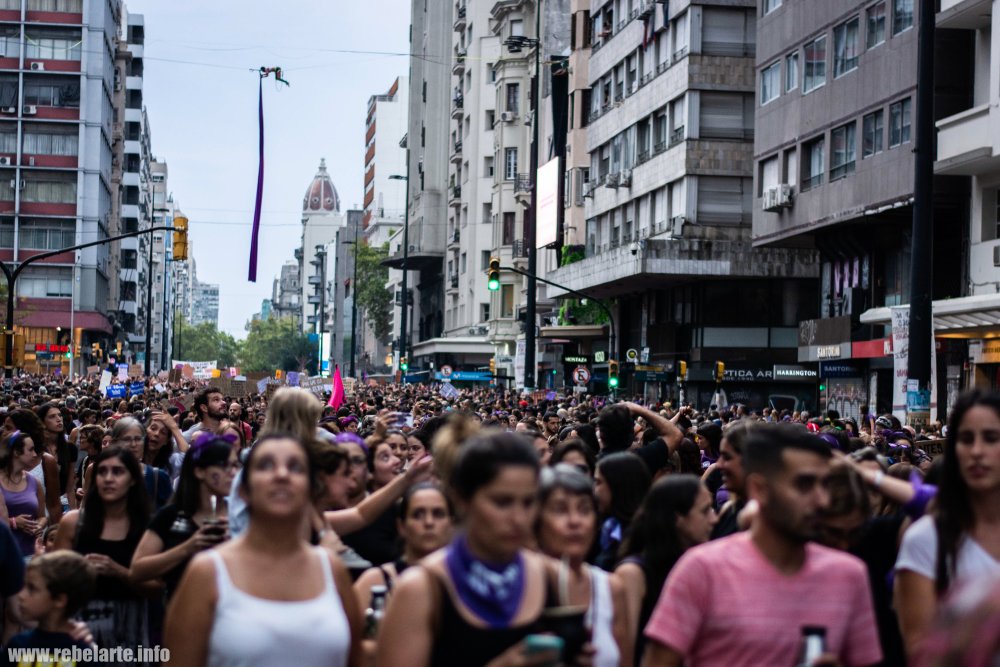
Women and gender dissidents, speaking and organizing among themselves, have become key protagonists of political and social change. Their actions have grown and multiplied in cities throughout Uruguay since the first women’s strike there in 2017.
In the coastal city of Maldonado, which is connected to the beach resort of Punta del Este, feminists have transformed the local political landscape. “Initially, 8M was totally co-opted by the municipality and the state government,” said Natalia Rodríguez, a member of the Red Feminista de Maldonado. “It was through feminist struggle that began with autonomous feminists that we managed to take back public space, in this case, the plaza.”
In Maldonado, autonomous feminists began gathering by the handful with a megaphone in the plaza. Now, the March 8th activities are the biggest the city sees every year, along with the May 20 silent march, held nationwide to demand justice for victims of disappearance during the dictatorship.
Political changes on a national scale impacted International Women’s Day this year, as police surrounded the march in Montevideo in a display of force. Not far from where hundreds of thousands marched, riot police blocked the entrance of a Catholic church.
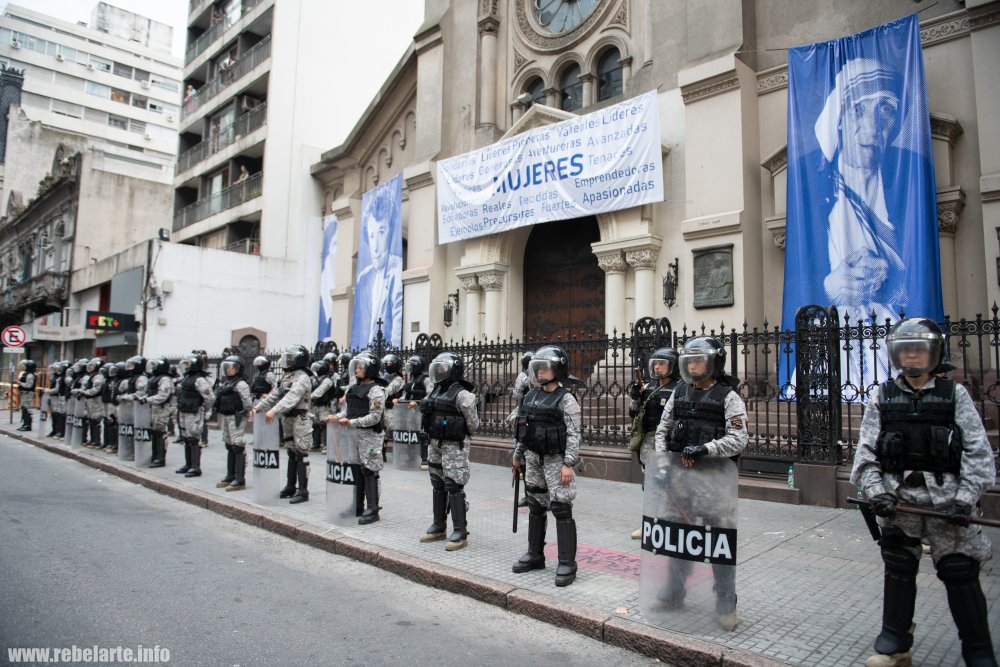
“There were security operations in the streets around us, and police were dressed in camouflage,” said Mariana Menéndez, of the Minervas Collective, in a Zoom interview from her home in Montevideo. “It brought back the idea of the dictatorship, reactivating a very deep sense of fear and rage.”
The change in policing tactics reflects the end of 15 years of progressive governance in Uruguay: on March 1, the country’s new President officially took office. Led by Luis Lacalle Pou, of the right wing National Party, the change of power represents a break with the progressive administrations that have led the country since the first election of Tabaré Vázquez in 2005.
This evening, there is a call for a socially distanced protest against a neoliberal “emergency” law put forward by Lacalle Pou, which promises cuts and austerity in the public sector, gifts to large corporations, and more powers for police.
The party that Vázquez and José Mujica led over the past 15 years, Frento Amplio, still holds the largest bloc of seats in congress and the senate, but lost its majority to the right wing National Party and a handful of smaller parties, including the militaristic Cabildo Abierto.
Cabildo Abierto is a new party led by Guido Manini Ríos, an elite former army general that Mujica named head of Uruguay’s armed forces in 2010 (he was later fired for political interference).
In February, senators and legislators from Cabildo Abierto entered the first legislative session in February after gathering around a banner that said “Recess is over.” It is worth noting that two weeks earlier, in a case that made national headlines, two teenagers were picked up, detained and beaten by police officers, who yelled “recess is over” as they punched the young men in the ribs.
In response to militarization, the women on the streets in Montevideo scaled up the ways in which they have each others’ backs, checking in on each other and creating buffers between police and more vulnerable people. “Instead of becoming paralyzed, we look after each other,” said Menéndez. “These are everyday practices, and we began to give them a political use.”
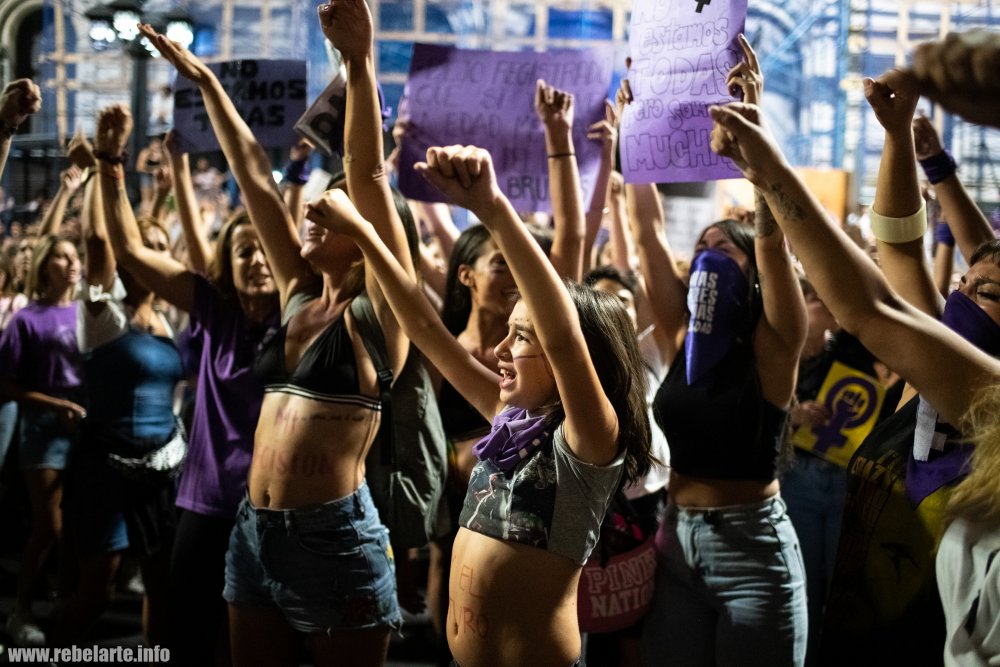
As the march flooded past on March 8, older women waved from their balconies above. One hung a banner showing a witch stirring a giant cauldron with Manini Ríos inside.
Despite the police presence, the march was festive. People danced, women howled and sang, some with their faces painted. As is their tradition, the massive gathering ended as folks from different collectives embraced, and read poetic reflections on how women are building power.
Uruguay is the only country in South America where abortion is legal. And though some of the women have specific demands, they are clear that their “desire is to change it all.” When they make statements, they don’t turn to face the media and the state, rather, they turn towards each other.
Feminist power in the street, which reached a crescendo on March 8, fell off as the first cases of COVID-19 were announced in Uruguay days later.
Those who can stay home are encouraged to do so, and much of public life is shuttered. The new government promised assistance for elders and the unemployed, legislators promised to take salary cuts. But against the grain of assisting Uruguayans through the pandemic, the government of Lacalle Pou raised the rates for water, electricity and internet and phone service shortly after taking office. Today, helicopters patrol Montevideo’s coastline.
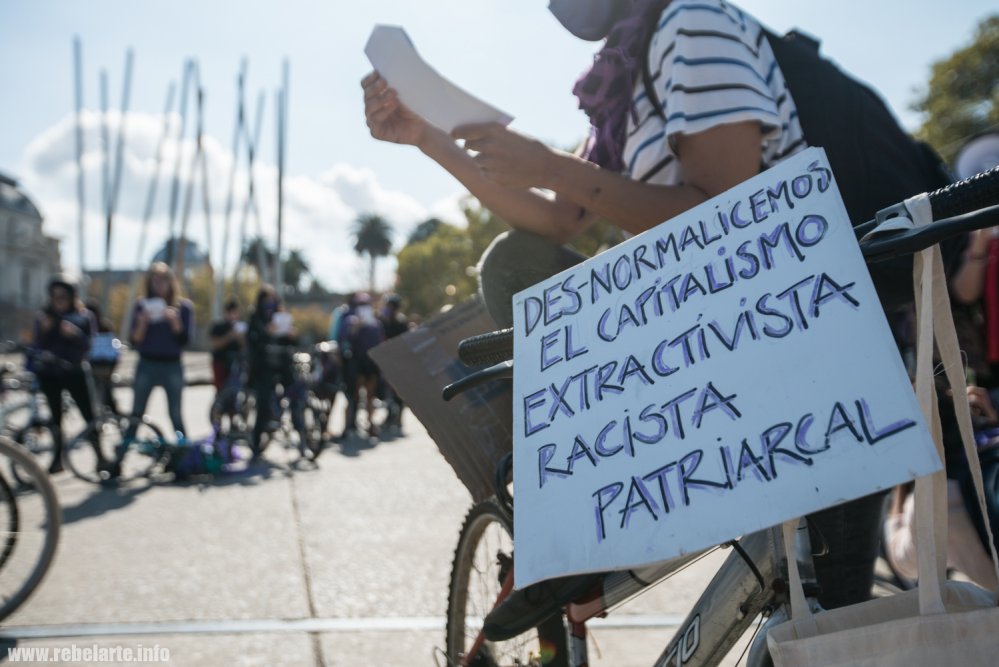
“What [the pandemic] has done is make the tasks of care and nutrition even more of a burden for women; since the children don’t go to school, everything got harder,” said Rodríguez in a Zoom interview from her home in Maldonado. “We talk about disobeying isolation as a political action.”
One key question is how to sustain the social energy of the women’s movement through a pandemic, as more women stay home as caregivers, often with a loss of income.
The Red Feminista de Maldonado has been hosting free feminist lunches on weekends, during which women and children show up to take home a hot chocolate and a sandwich or a meal, others come by with bread or pastries to share. Even though they are outdoors and don’t have seating or carry out group activities, these activities are criminalized by local police.
“As soon as we start the meal, the operations start, it’s impressive: the police trucks go by, the motorcycles and the vans,” said Fabiana Rado, who lives in the Kennedy neighborhood where the lunches take place. “So in order to avoid trouble, we give things that folks can take away.”
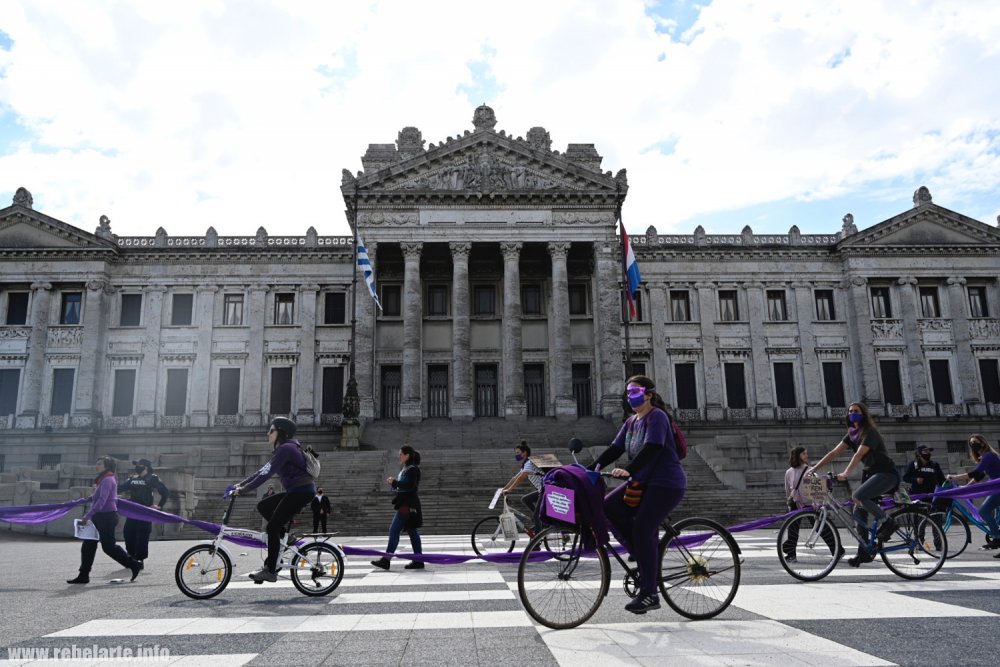
The women in the Minervas collective have also come together to create a fund to support those who have lost employment as well as collecting and distributing clothing, food and supplies and running a community hot lunch. They continue to carry out consciousness raising activities online, as well as noise demos, during which they bang pots and pans to protest violence from quarantine.
On May 1st, members of dozens of feminist collectives took the streets in a socially distanced protest, demanding that life be valued before corporate profits. Twenty-one feminist organizations released a statement making clear they will continue to struggle against patriarchy, against fascism, racism and capitalism.
“A lot of what we’ve been saying for years has become really obvious,” said Menéndez. “Women are sustaining everything right now.”
This is the third instalment in Toward Freedom’s América Feminista series. Next week we’ll have a story from Guatemala.
Author Bio:
Dawn Marie Paley is editor of Toward Freedom and author of Drug War Capitalism. Follow her on Twitter @dawn_.
